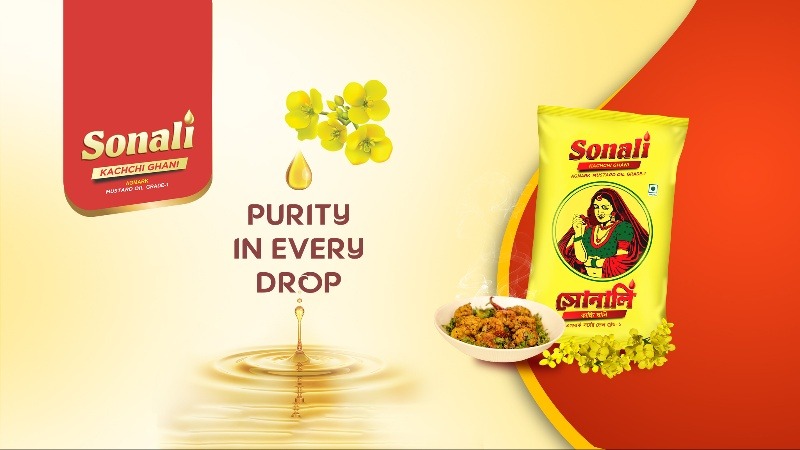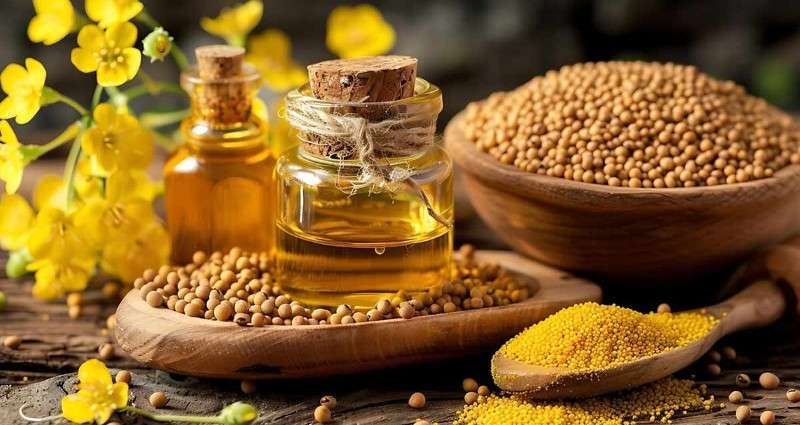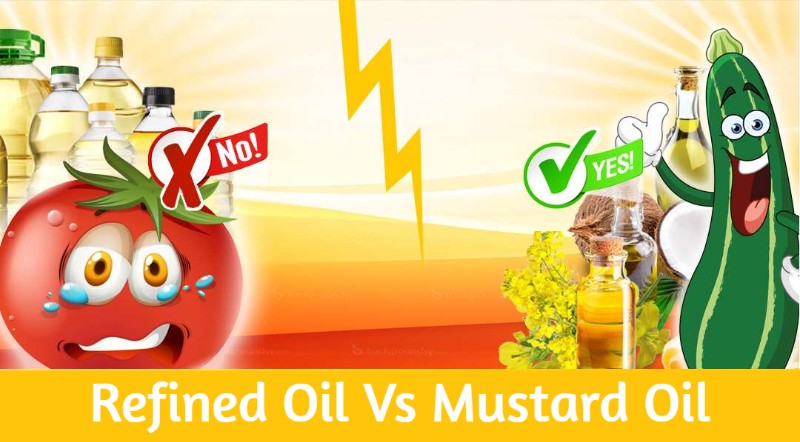Heart health is the most important. It is well known that processed foods are harmful to the heart. The heart can also be affected by the kind of oil used in cooking. It is of utmost importance to use the right oil if you or someone in your family has a heart problem.
Thousands of users within the Indian diaspora search online for ‘Which oil is best for heart patients in India?’ There are several choices available, but some are better than the rest.
In this blog, we will highlight the best cooking oil for heart patients in India and the selection criteria for it.
Why Cooking Oil Matters for Heart Health?
Fats are contained in cooking oils. Some are beneficial, while some are harmful. Good fats help to maintain a healthy heart, while bad fats increase the chances of heart disease. It is wise to choose oil with more good fats and low amounts of bad fats.
In India, the ideal oil for a heart-healthy diet should contain a higher proportion of omega-3 unsaturated fatty acids and low amounts of trans fats and saturated fats.
Best cooking oil for heart patients in India
Following is a list of some of the Best cooking oil for heart patients in India:
1. Mustard Oil
There are many health benefits of mustard oil. It contains omega-3 fatty acids, which help reduce bad cholesterol. It also has anti-inflammatory properties. Many doctors recommend mustard oil to heart patients. It is perfect for everyday cooking. Look for the best cold-pressed mustard oil for reputed brands trusted in India.
2. Olive Oil
Olive oil is one of the best oil for heart health in India. It comprises nutritious fats that lower the chances of heart problems. It is best suited for dressings on salads and light cooking purposes.
3. Canola Oil
The composition of canola oil makes it beneficial for heart health because it contains a perfectly balanced omega 3 fatty acids content and a very low amount of saturated fats. It is good for cholesterol regulation too. In fact, canola oil is great for Indian cooking as well.
4. Rice Bran Oil
Possessing a good ratio of healthy fats along with a good concentration of antioxidants make rice bran oil one of the healthiest oils available. This oil is also good for people having heart ailments since it is good in hypertension management. In addition, the oil is good for shallow frying and deep frying.
5. Flaxseed Oil
Flaxseed oil holds one of the most remarkable positions in the list of sources of omega 3 fatty acids. Flaxseed oil is an important protector of the heart, which is important for other inflammatory diseases. Apart from that, flaxseed oil is great for drizzling on vegetable salads because it is so tasty.
6. Corn Oil
Sunflower oil is thinner in viscosity compared to the majority of oils and contains a very excellent content of vitamin E. Sunflower oil is heart-healthy and beneficial for reducing blood cholesterol.
7. Small Quantities of Oil from Coconut
Coconut oil contains saturated fat, but in moderation, it can be healthy. Nevertheless, it must be avoided in large quantities.
Which Oil is Best for Heart Patients in India?
The best cooking oil for heart patients in India varies according to their health. Mustard, olive, and rice bran oils are some of the best choices. These decrease levels of bad cholesterol and improve the functionality of a person’s heart.
Since physicians recommend, mixing oils is always healthier for the body since the body then gets all the components it needs.
People Also Search: Mustard Oil vs Refined Oil – Which Is Better For Health?
How to Choose the Best Cooking Oil For Heart Patients in India?
Take a look at the following tips to choose the best oil for heart health in India:
1. Select oils high in unsaturated fats
Monounsaturated fat along with poly unsaturated fat tends to be less harmful to heart and cholesterol as compared to saturated fats. Hence sunflower, olive and flaxseed oil are good options for you.
2. Shun oils with trans fats and hydrogenated fats
These types of oils not only increase the chances of coronary heart disease, but many others as well. In no case should you buy any oil that states on the label, ‘partially hydrogenated oil’.
3. Better nutrition can be achieved from cold-pressed oils
Gold standard, cold-pressed oil, has far all-needed vitamins, antioxidants, and minerals than their refined counterparts.
How to Use Cooking Oils for Heart Health?
Using the best oil for heart health in India requires employing it correctly. Consider these points:
-
Avoid reusing oil multiple times, as this makes the oil unhealthy.
-
Reduce the amount of oil used in cooking, as too much harms the heart.
-
Whenever possible, use unrefined oils for salad dressing to get the most out of them.
-
Always cook on low to medium heat to keep the soil healthy.
-
For better nutrition, using two or three oils at a time is good.
Best Mustard Oil Brand in India
For the best mustard oil brand in India, find one without synthetic additives. Mustard oil is very healthy for the heart, but only if the mustard oil is good quality. If you are to buy mustard oil, always read the labels and be cautious while selecting vendors.
If you buy mustard oil online, look for cold-pressed oils. Cold-pressed mustard oil is more suitable for use while cooking as it contains all the nutrients.
Conclusion
Heart patients need cooking oil that contains healthy fats and lacks bad chemicals in India. The best edible oils for heart health are rice bran, mustard, and olive oil. Getting the right cooking oil can serve a purpose in heart care.
Sonali Mustard Oil is the best cooking oil for heart patients in India. We offer a wide variety of products and genuinely heart-friendly oils. Our oil is preserved using top-notch equipment to retain maximum nutrients. You are guaranteed a healthy heart and an even healthier lifestyle with Sonali Mustard Oil. Sonali Mustard Oil has the best solutions for everyone—all you need is a switch to nutrition-packed oils or mustard oils. So, choose wisely!




